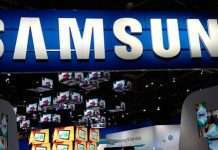President Donald Trump announced on Sunday that the United States will restrict access to Nvidia’s most powerful computer chips, known as the Blackwell series, preventing other countries from acquiring them. This move comes amid escalating global competition in artificial intelligence (AI).
Trump stated during an interview with CBS News that “We will not let anybody have them other than the United States.” He asserted that allowing other nations access to this cutting-edge technology would provide them with a comparable advantage in the AI race. While acknowledging that Nvidia would still be able to sell chips to China, he emphasized that they wouldn’t gain access to the most advanced Blackwell models.
This decision marks another shift in Trump’s fluctuating stance on semiconductor export controls during his presidency. He had previously oscillated between restricting and approving sales of NVIDIA’s H20 chip to China. The President’s new strategy aims to bolster US dominance in AI, despite a previous policy that encouraged exporting the full spectrum of American AI technology globally.
Nvidia, a California-based company renowned for supplying crucial chips to train artificial intelligence models, became the world’s most valuable company in August 2023, surpassing a market valuation of $5 trillion. Many leading AI companies worldwide, including those in China, rely on Nvidia’s hardware for their operations.
The news of these restrictions emerged after Trump disclosed his intention to discuss the Blackwell chips with Chinese President Xi Jinping during a summit in South Korea. However, that planned conversation did not materialize.
This sudden restriction raises several questions about its immediate impact on international collaborations and research projects heavily reliant on Nvidia’s technology. In June, Nvidia announced plans to supply thousands of exaflops of computing power from Blackwell chip systems to France, Italy, and the United Kingdom. These deployments were intended to bolster European AI development and digital sovereignty initiatives involving companies like Mistral AI, Domyn, Nebius, and Nscale, along with telecom giants Fastweb, Orange, Swisscom, Telefonica, and Telenor.
It remains unclear how these existing agreements and future collaborations will be affected by the newly announced restrictions on advanced Nvidia chips. Euronews Next has reached out to both the US administration and Nvidia for clarification regarding the implications of these export controls, particularly concerning European partnerships.
